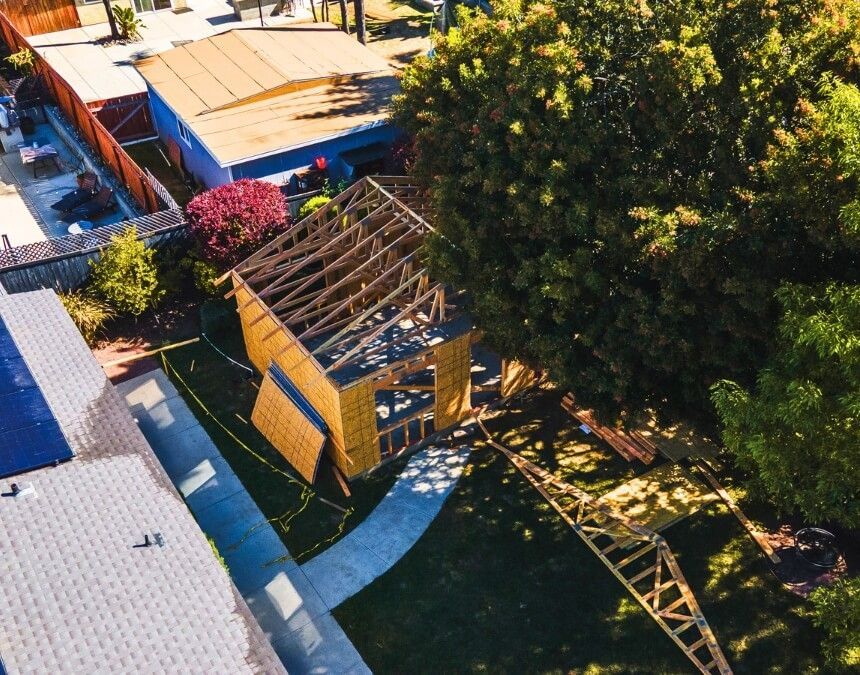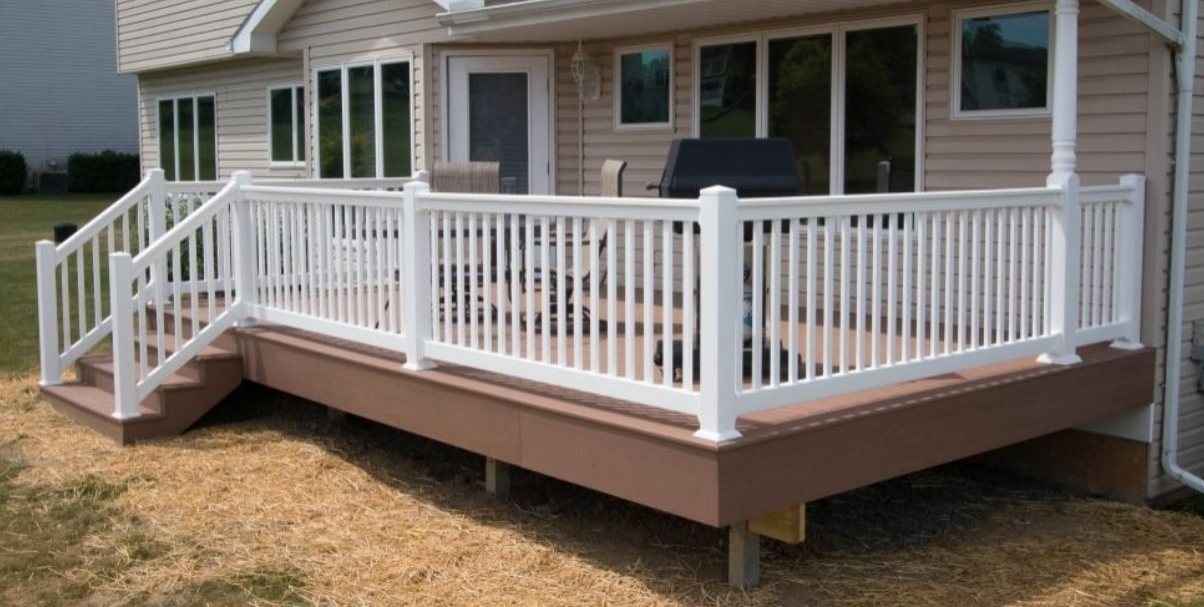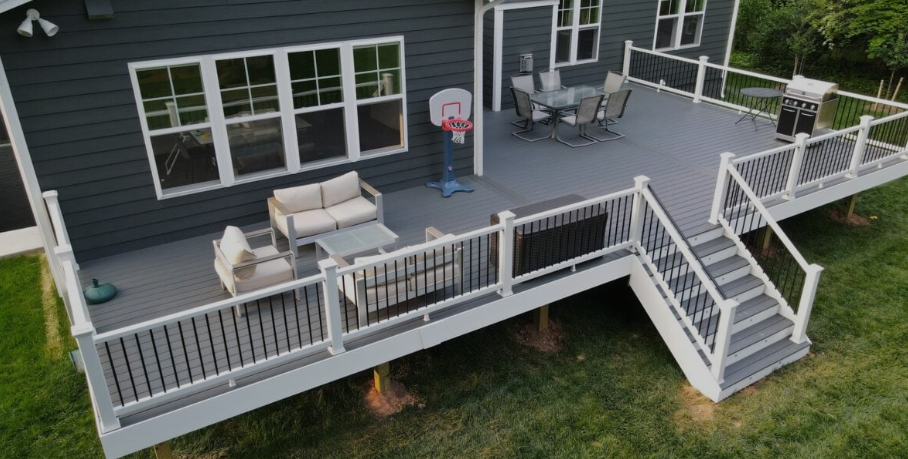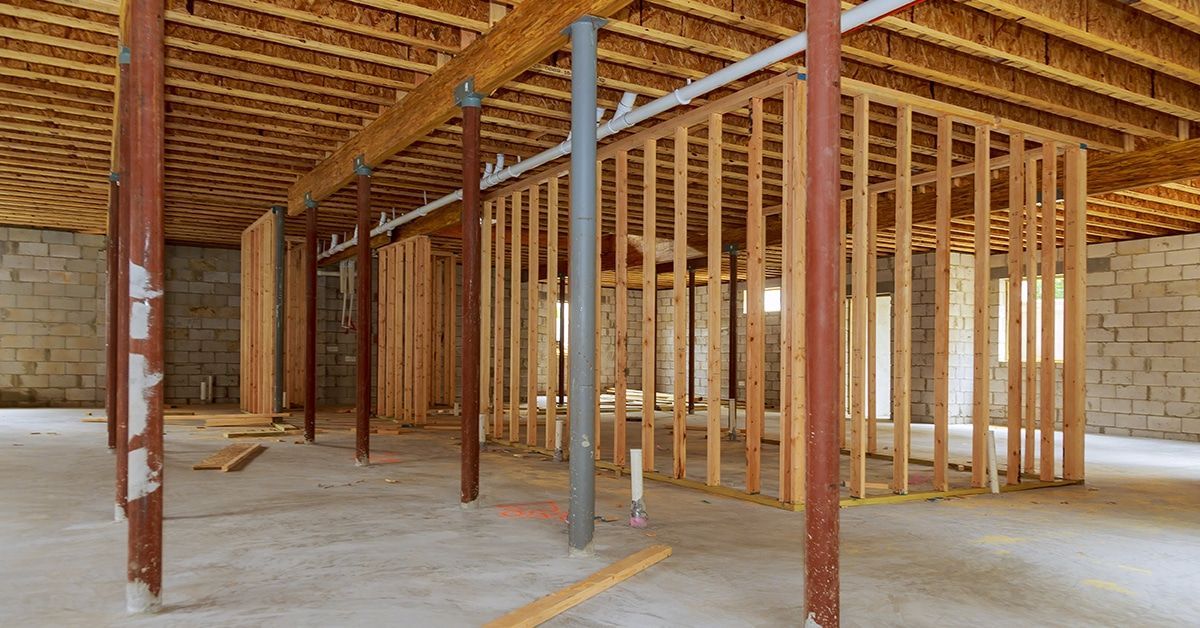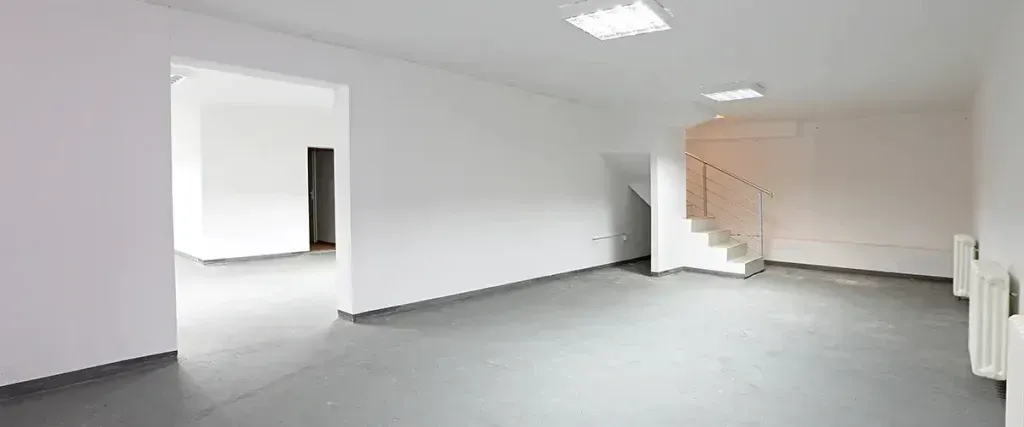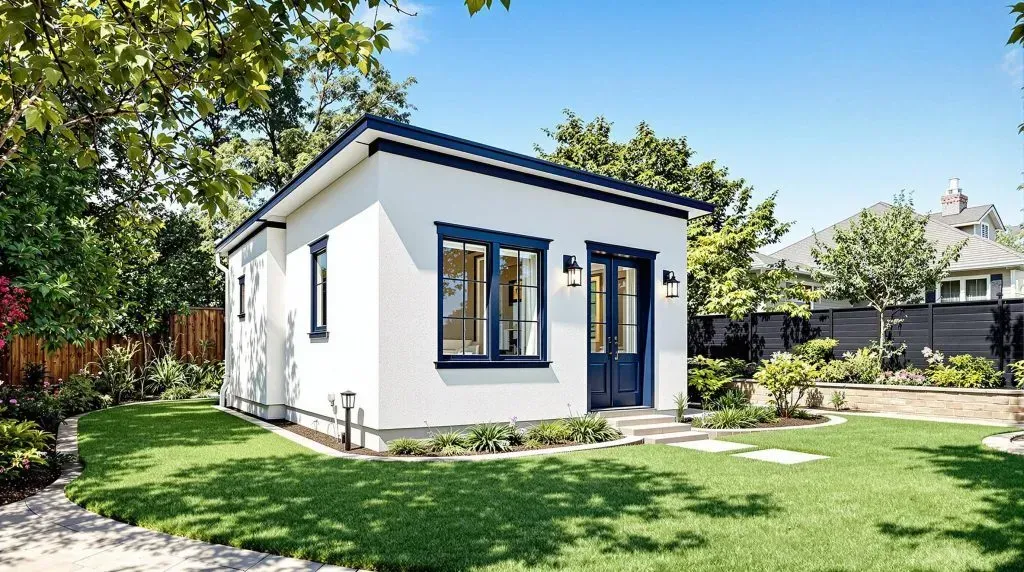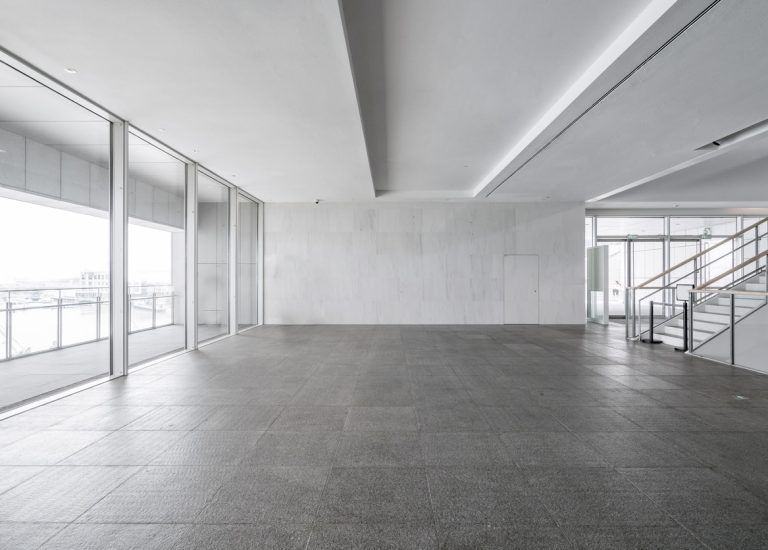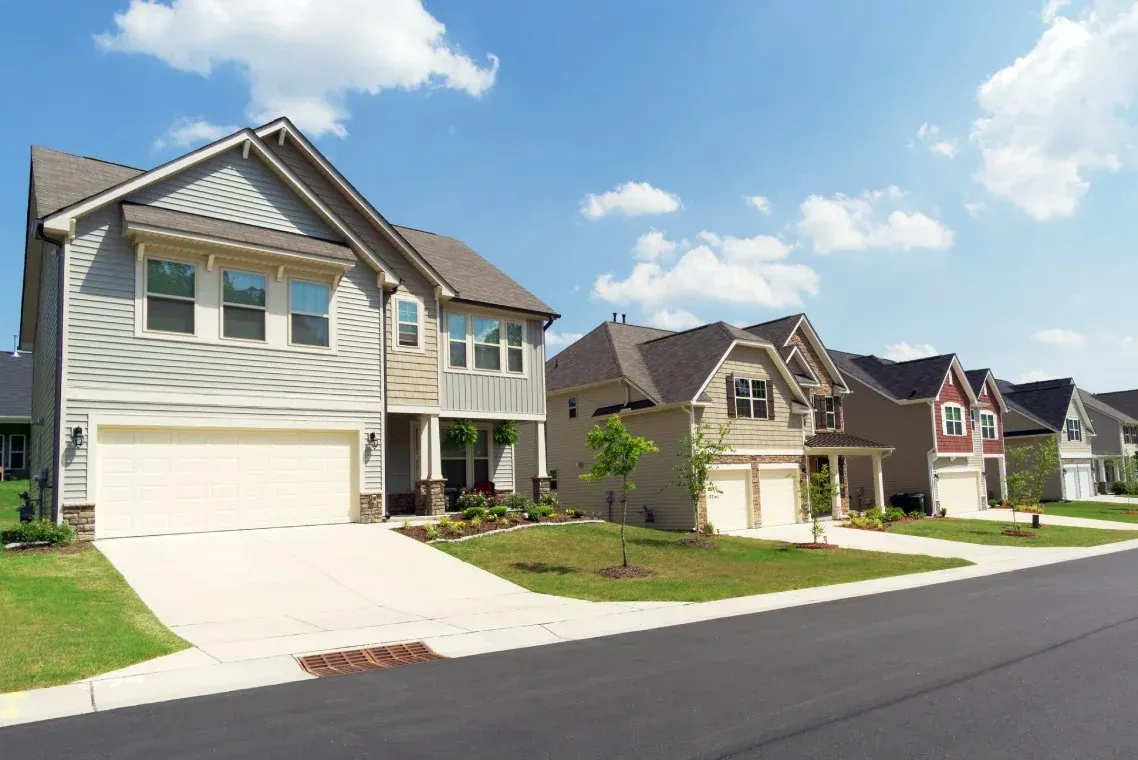Rhode Island Building Permits: Homeowners Guide
A Rhode Island building permit is official authorization from local authorities allowing homeowners to construct, alter, or repair structures according to state and local building codes. Building permits ensure construction projects meet safety standards, zoning requirements, and structural integrity guidelines established by Rhode Island's building regulations.
When Do You Need Building Permits in Rhode Island?
Rhode Island building permits are required for most construction projects including new construction, additions, structural modifications, electrical work, plumbing installations, and HVAC system changes. However, permit requirements vary between Rhode Island's 39 cities and towns, making local consultation essential.
Projects Requiring Building Permits in Rhode Island
Structural Work All structural modifications including wall removal, beam installation, foundation work, and roof structural changes require building permits throughout Rhode Island. These projects affect building integrity and must comply with state building codes.
Electrical Work Electrical installations, panel upgrades, new circuits, and major electrical modifications require permits and licensed electrician installation. Rhode Island electrical codes mandate professional installation and inspection for safety compliance.
Plumbing Projects New plumbing installations, bathroom additions, kitchen remodels involving plumbing, and septic system work require building permits. Licensed plumbers must perform permitted work and coordinate required inspections.
HVAC Installation Heating, ventilation, and air conditioning system installations or major modifications require permits. This includes furnace replacement, ductwork installation, and central air conditioning systems.
Home Additions All home additions regardless of size require building permits in Rhode Island. This includes room additions, garage construction, deck installation, and accessory structure construction.
Projects Not Requiring Building Permits in Rhode Island
Minor Repairs Routine maintenance including painting, flooring replacement, cabinet installation, and minor repairs typically don't require permits. However, electrical or plumbing work within these projects may trigger permit requirements.
Small Structures Sheds under 120 square feet, fences under 6 feet, and small decks may not require permits in some Rhode Island communities. Check local requirements as regulations vary significantly.
Cosmetic Improvements Interior painting, wallpaper installation, carpet replacement, and similar cosmetic improvements generally don't require permits unless they involve structural or system modifications.
Rhode Island Building Permit Process
Step 1: Determine Permit Requirements
Contact your local building department to determine specific permit requirements for your project. Rhode Island's 39 municipalities have varying requirements, fees, and processes that must be followed.
Step 2: Prepare Required Documentation
Building permit applications require detailed project plans, site surveys, contractor information, and engineering drawings for complex projects. Professional architects or engineers may be required for major projects.
Step 3: Submit Application and Pay Fees
Submit completed applications with required documentation and permit fees. Rhode Island permit fees vary by municipality and project scope, ranging from $50 for minor work to thousands for major construction.
Step 4: Plan Review Process
Local building departments review applications for code compliance, zoning conformance, and structural adequacy. Review periods vary from days to weeks depending on project complexity and departmental workload.
Step 5: Permit Approval and Issuance
Approved permits are issued with specific conditions, inspection schedules, and expiration dates. Permits must be displayed prominently at job sites and work must begin within specified timeframes.
Step 6: Construction and Inspections
Construction proceeds according to approved plans with required inspections at specific milestones. Common inspections include foundation, framing, electrical, plumbing, and final inspections.
Rhode Island Building Permit Costs
Permit Fee Structure
Rhode Island building permit fees are calculated based on project valuation, square footage, or flat rates depending on local regulations. Most municipalities use project valuation methods with fees ranging from $5-$15 per $1,000 of construction value.
Typical Permit Costs by Project Type
Minor Renovations: $50-$300 Kitchen remodels, bathroom renovations, and interior modifications typically cost $50-$300 for building permits, depending on project scope and local fee structures.
Home Additions: $500-$2,000 Room additions, garage construction, and major structural work require permits costing $500-$2,000 based on project size and complexity.
New Construction: $2,000-$10,000+ New home construction permits vary significantly based on home size, value, and local requirements. Luxury homes may require permits exceeding $10,000 in some Rhode Island communities.
Electrical/Plumbing: $100-$500 Electrical and plumbing permits typically cost $100-$500 depending on project scope. Panel upgrades and major system installations fall at the higher end of this range.
Rhode Island Building Code Requirements
State Building Code Adoption
Rhode Island adopts the International Building Code (IBC) with state-specific modifications addressing local climate, seismic, and coastal conditions. Local municipalities may adopt additional requirements beyond state minimums.
Residential Building Standards
Rhode Island residential construction must meet specific standards for structural integrity, fire safety, energy efficiency, and accessibility. These standards ensure occupant safety and building durability.
Coastal Construction Requirements
Properties in Rhode Island's coastal areas must comply with additional requirements including flood-resistant construction, wind load calculations, and coastal erosion considerations.
Historic District Considerations
Properties in historic districts may require additional approvals from historic preservation commissions. These requirements ensure renovations maintain historical character while meeting modern building codes.
Rhode Island Building Permit Inspections
Required Inspection Types
Foundation Inspection Foundation inspections verify proper excavation, reinforcement placement, and concrete installation before foundation walls are constructed. This critical inspection ensures structural integrity.
Framing Inspection Framing inspections examine structural elements including lumber grades, connections, and load-bearing capacity. This inspection occurs before insulation and drywall installation.
Electrical Inspection Electrical inspections verify proper wiring installation, grounding, and safety compliance. These inspections typically occur at rough-in and final stages.
Plumbing Inspection Plumbing inspections examine pipe installation, connections, and pressure testing. Rough-in and final inspections ensure proper installation and code compliance.
Final Inspection Final inspections verify overall project completion, code compliance, and safety requirements. Certificate of occupancy is issued after successful final inspection.
Inspection Scheduling
Inspections must be scheduled in advance with local building departments. Rhode Island municipalities typically require 24-48 hours notice for inspection scheduling. Failed inspections require corrections and re-inspection.
Rhode Island Building Permit Violations
Common Violations
Working without permits, deviating from approved plans, and failing to schedule required inspections represent common Rhode Island building permit violations. These violations can result in fines, work stoppage, and legal complications.
Consequences of Violations
Permit violations may result in fines up to $1,000 per day, work stoppage orders, and requirements to demolish non-compliant work. Insurance coverage may be affected by unpermitted work.
Resolving Violations
Violations can often be resolved by obtaining after-the-fact permits, making required corrections, and paying applicable fines. Professional assistance may be necessary for complex violation resolution.
Rhode Island Municipality-Specific Requirements
Providence Building Permits
Providence requires building permits for most construction projects with fees based on project valuation. The city maintains online permit applications and inspection scheduling systems for efficient processing.
Newport Building Permits
Newport's historic character requires additional review processes for many projects. Historic district properties need Historic District Commission approval in addition to building permits.
Warwick Building Permits
Warwick utilizes streamlined permit processes for residential projects with online applications and expedited review for minor renovations. The city offers helpful resources for homeowners navigating permit requirements.
Cranston Building Permits
Cranston provides detailed permit requirement information and maintains efficient review processes. The city offers pre-application consultations for complex projects.
Pawtucket Building Permits
Pawtucket emphasizes historic preservation in permit reviews while maintaining reasonable timelines for residential projects. The city provides comprehensive permit guidance for homeowners.
Hiring Contractors for Permitted Work
Licensed Contractor Requirements
Rhode Island requires specific licenses for construction trades including electrical, plumbing, and general contracting. Verify contractor licenses through the Rhode Island Department of Business Regulation.
Contractor Responsibilities
Licensed contractors understand permit requirements, building codes, and inspection processes. They typically handle permit applications, coordinate inspections, and ensure code compliance.
Homeowner Responsibilities
Homeowners can obtain permits for their own work but must demonstrate competency for complex projects. DIY electrical and plumbing work requires homeowner electrical permits and licensed professional oversight.
Permit Transfer and Liability
Building permits typically cannot be transferred between contractors. New contractors may need to obtain new permits or assume responsibility for existing permits with proper documentation.
Rhode Island Building Permit Timeline
Application Processing
Rhode Island permit applications typically require 1-4 weeks for processing depending on project complexity and local department workload. Complex projects requiring plan review may take longer.
Inspection Scheduling
Inspections can usually be scheduled within 24-48 hours of request. Weather conditions, department workload, and scheduling conflicts may affect inspection timing.
Permit Expiration
Rhode Island building permits typically expire 6-12 months after issuance if work hasn't begun. Permit extensions are available but may require additional fees and updated applications.
Project Completion
Projects must be completed within permit timeframes, typically 12-24 months for residential work. Extensions may be available for valid reasons but require formal requests and additional fees.
Digital and Online Permit Services
Online Applications
Many Rhode Island municipalities now offer online permit applications, reducing processing time and improving convenience. Online systems allow application tracking and status monitoring.
Digital Plan Submission
Electronic plan submission is available in many communities, eliminating physical plan delivery requirements. Digital submission often speeds review processes and reduces costs.
Inspection Scheduling
Online inspection scheduling systems allow convenient appointment booking and automatic confirmation. These systems improve efficiency and reduce phone call requirements.
Permit Status Tracking
Online permit tracking allows real-time status monitoring throughout the application and review process. This transparency improves communication and project planning.
Common Rhode Island Building Permit Mistakes
Inadequate Documentation
Incomplete applications and insufficient documentation cause delays and rejections. Professional plan preparation ensures comprehensive documentation and faster approval.
Zoning Violations
Failing to verify zoning compliance before applying for permits results in rejections and project delays. Zoning review should occur before detailed design development.
Contractor License Issues
Using unlicensed contractors creates permit problems and potential legal issues. Verify contractor licenses before hiring and ensure proper permit applications.
Timeline Mismanagement
Underestimating permit timelines affects project schedules and contractor availability. Build adequate permit time into project planning and scheduling.
Rhode Island Building Permit Resources
State Resources
Rhode Island Department of Business Regulation provides statewide licensing information and general building code guidance. The state maintains helpful online resources for homeowners and contractors.
Local Building Departments
Each municipality maintains building departments with specific permit information, applications, and requirements. Local departments provide the most accurate and current permit information.
Professional Organizations
Rhode Island contractor associations and professional organizations provide resources, training, and referrals for licensed professionals. These organizations help homeowners find qualified contractors.
Need help navigating Rhode Island building permits for your home improvement project? Rockhouse Construction understands Rhode Island's complex permit requirements and works with all local building departments throughout the state. Our experienced team handles permit applications, coordinates inspections, and ensures your project meets all building codes and regulations. From simple renovations to complex additions, we streamline the permit process so you can focus on your project goals. Contact us today to discuss your Rhode Island building permit needs and let our expertise guide your project from permit application to final inspection.
